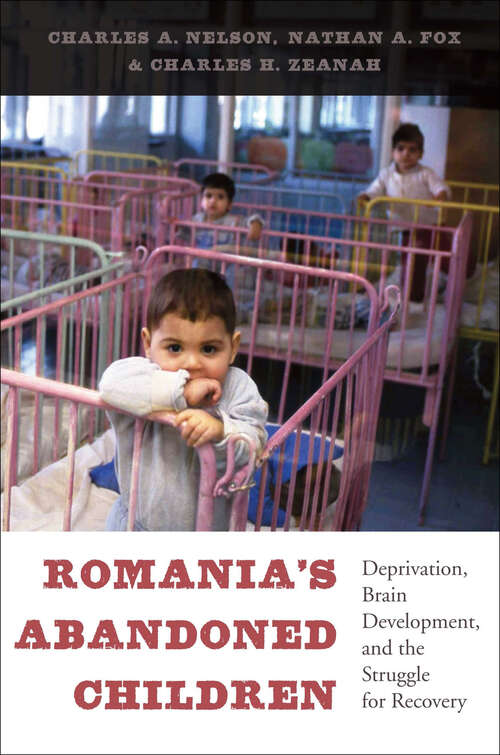
Romania's Abandoned Children: Deprivation, Brain Development, and the Struggle for Recovery
Psychology
Synthetic audio, Automated braille
Summary
This &“landmark study of child development&” examines the devastating effects of early childhood institutionalization (Avshalom Caspi, Duke University). In 1989, the fall of Romania's Ceausescu regime left approximately 170,000 children in impoverished institutions across the country. This crisis prompted the… most comprehensive study to date on the effects of institutionalization on a child&’s brain development, behavior, and psychological functioning. Romania's Abandoned Children documents this landmark study, and the devastating toll paid by children who are deprived of responsive care, social interaction, stimulation, and psychological comfort. Launched in 2000, the Bucharest Early Intervention Project was a rigorously controlled investigation of foster care as an alternative to institutionalization. Examining a total of 136 abandoned infants and toddlers, researchers randomly assigned half of them to foster care, while the other half stayed in Romanian institutions. Over a twelve-year span, both groups were assessed for physical growth, cognitive functioning, brain development, and social behavior. Data from a third group of children raised by their birth families were collected for comparison. The study found that the institutionalized children were severely impaired, but that the sooner they were placed into foster care, the better their recovery. Combining scientific, historical, and personal narratives in a gripping, often heartbreaking, account, Romania's Abandoned Children highlights the need to help the millions of parentless children living in institutions throughout the world.